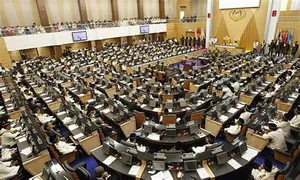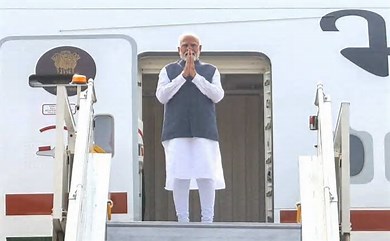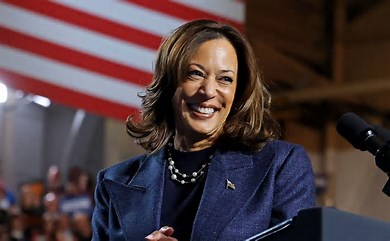
The recently concluded second phase of the budget session of Parliament shall perhaps go down in history for all the wrong reasons. Not only was it one of the least productive sessions, but also witnessed scenes rarely seen in the two august Houses. The Lok Sabha conducted a total business of only 50 hours while the Rajya Sabha’s workable duration was around 33 hours. In all more than 150 crores of public money was wasted in the last few weeks, something which is not only shameful but a matter of deep concern so far as our democracy goes. Parliament is supposed to be the forum where divergent views on issues can be debated after healthy discussions, to reach an amicable workable solution. Yes, the party in power has the final say on matters but the voice of the Opposition cannot be stifled or ignored in the best interests of democracy. Normally speaking it is the responsibility of the ruling dispensation to ensure the smooth running of Parliament though theoretically, an argument often put forward is that both the ruling party as well as the Opposition should enable the transaction of legitimate business as per the procedures and rules which are applicable. In the latest instance, the ruling party took the lead in disrupting the proceedings by making Rahul Gandhi’s utterances in England as a major issue while demanding a public apology from him. There can be divergent views on what Rahul had stated or whether he should have said so on a foreign soil. But the former Congress president was not even provided an opportunity to explain his view point, and instead ministers were permitted to launch a scathing attack on him. The opposition was of the opinion that this was being done with abetment of the presiding officers and to divert attention from the demand of a JPC into the allegations against businessman, Gautam Adani. The net result was that nothing moved and there were adjournments on every occasion since members made things extremely difficult. Towards the end, Rahul Gandhi’s membership of Lok Sabha was terminated following his arbitrary conviction in a defamation case by a Surat Court.
The matter is now being addressed legally by the legal luminaries of the Congress. However, what was most disturbing was the manner in which at least one presiding officer reacted to happenings outside Parliament thus raising questions about the neutrality of the august office. It is an established tradition that the presiding officer does not express any views of his own and is considered to be the voice of the House and not of the government. This convention was breached and thus opposition parties in particular were extremely unhappy with the Rajya Sabha Chairman for playing a pro-active role. The Chairman on his part claimed that he was performing his duties as a constitutional authority and was very much within his rights to say what he wanted on matters of national interest. It is extremely imperative that the office of the presiding officer should always be above politics of any kind. In the House of Commons for instance, once the Speaker is elected, he relinquishes his association with his political party. Thereafter in every election, no party puts up a candidate against him and he gets elected unopposed till the time he holds the office. This practice is something from which our Parliamentarians can learn. There has been a lot of talk about the new Parliament building which is coming up but unless those who occupy it rise to the highest values of democracy and its traditions, its existence would be totally peripheral to the national cause. There are lessons to be learnt from this unproductive session and members in future must always remember that they owe more to the people who have elected them rather to the narrow political agendas of the parties.















